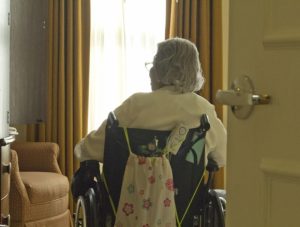A new government audit points the finger at Medicare for failure to enforce federal law requiring immediate law enforcement notification of any sexual or physical abuse against nursing home residents. 
The Health and Human Services’ Office of Inspector General put forth an early alert on preliminary data on the issue, based on sizable samples from cases in 33 states. Just based on those results, the IG reports, there is a pressing and immediate need for rapid corrective action.
The IG is responsible for investigating abuse, waste and fraud within the health care system. This audit was part of a much larger investigation that is ongoing, so we can expect to hear more once researchers conclude their analysis.
As our Fort Lauderdale nursing home abuse attorneys know, there are approximately 1.4 million people living in nursing homes nationally. According to the Florida Health Care Association, there are nearly 700 licensed nursing homes in Florida, with about 84,000 beds and housing approximately 73,000 people. There are also about 92,000 people living in assisted living facilities (wherein patients may require less day-to-day assistance). Care for many of these patients is covered by Medicare.
Section 1150B of the Social Security Act requires that any reasonable suspicion of a crime committed against a person who is a resident in a federally-funded long-term care facility must be reported immediately (i.e., within two hours if the suspected incident causes seriously bodily injuries and within 24 hours if it does not). Such reports have to be filed with at least one law enforcement agency and survey agency. Failure to do so can be met with big fines, of up to $300,000 and exclusion from participation in federal health care programs.
Skilled nursing facilities must make certain, per 42 CFR 483.13, that any allegations of abuse, neglect, mistreatment, theft, or fraud or immediately reported to facility administrators in accordance with state law and established procedure.
What the IG learned through its research is that group home providers failed to report up to 15 percent of critical incidents to appropriate state agencies. Further, 22 percent of Medicare patients in skilled nursing facilities suffered some type of adverse event. That’s almost 1 in 4. Some of the most common included:
- Infections
- Pressure ulcers
- Medication-induced bleeding
Subsequent review of medical records in these cases revealed almost 70 percent of these incidents could have been prevented through better care.
Of the sample 134 incidents of potential abuse and neglect in nursing homes found in 33 states in 2015 and 2016, six of those occurred in Florida.
One of the examples cited was a woman (whose identity was protected) with a previously diagnosed medical condition that inhibited her ability to communicate and walk. The emergency room record indicates she was sexually assaulted by a fellow male resident of the facility, and evidence to support this was gathered at the hospital. Despite this, employees of the facility failed to immediately report the incident to law enforcement. Instead, the staff at the nursing home bathed her, helped her to the bathroom and changed her clothing – destroying any evidence that could have been detected with a rape kit.
Incidents like this were revealed over and over in the government’s research.
Although more information will be forthcoming, the IG urged immediate action on Medicare’s inadequate procedures to ensure incidents of possible nursing home abuse or neglect are identified and reported.
Call Fort Lauderdale Injury Attorney Richard Ansara at (954) 761-4011. Serving Broward, Miami-Dade and Palm Beach counties.
Additional Resources:
More Blog Entries:
Court: Designated Driver Not Bound by Higher Standard of Care, Sept. 12, 2017, Fort Lauderdale Nursing Home Abuse Attorney
 Broward Injury Lawyer Blog
Broward Injury Lawyer Blog



